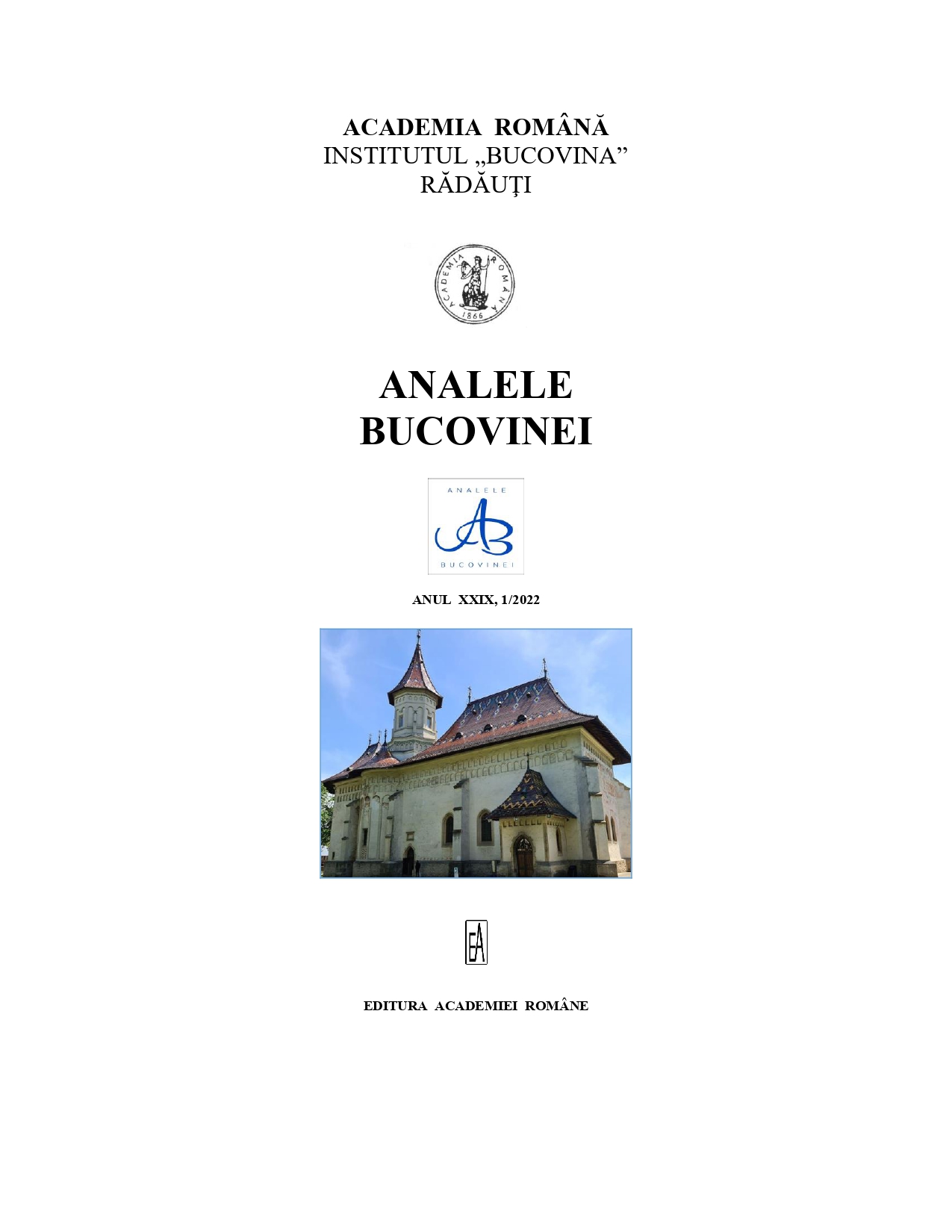„BUCHENLANDDEUTSCHE“ VERGEMEINSCHAFTUNG NACH DER „UMSIEDLUNG“. DIE „LANDSMANNSCHAFT DER BUCHENLANDDEUTSCHEN“ ALS ETHNOPOLITISCHE UNTERNEHMERIN
The "German Bukovinians". The formation of the German Bukovinian communities after the "resettlement". The "German Bukovinian Association" - ethopolitical actor
Author(s): Alexander WeidleSubject(s): History, Anthropology, Ethnohistory, Oral history, Recent History (1900 till today), Cultural Anthropology / Ethnology, Culture and social structure , Post-War period (1950 - 1989), Present Times (2010 - today), Migration Studies, Ethnic Minorities Studies
Published by: Editura Academiei Române
Keywords: Bukovina; Association of the Bukovinian Germans; German cultural community; displacement;
Summary/Abstract: The following article relies on sources from the archive of the only Association of the Bukovinian Germans – “Landsmannschaft der Buchenlanddeutschen” – which was active on (almost) the entire federal territory of Germany. This organization was founded in 1949 and was disbanded at the request of its last president, Ewald Zachman, in 2019.The author considers that members of the three to four Christian groups of German speaking population in Bukovina – among which there was no ethnic cohesion before the displacement, but rather a confessional, socio-economic or local one – were turned into“Bukovinian Germans” by the action of “entnopolitical entrepreneurs / performers”(as according to Roger Brubaker). In order to problematize the “becoming” of the Bukovinian Germans, Weidle formulates and presents four hypotheses: 1. The involvement(commitment) of people who enjoyed authority or notoriety in the “old homeland”, Bukovina, even if many of them collaborated with the National Socialist regime;2. The top-down legitimation, i. e. since the first years of its existence, the “Association of the Bukovinian Germans” has been conferred various competences, including that of deciding who should be compensated for the material losses suffered as a result of the displacement. The fact that many Jewish women and men from Bukovina were not recognized as belonging to a “German cultural community” and they did not benefit from compensation would be, according to the author of this hypothesis, one of the darkest aspects in the history of the organization of the “Bukovinian Germans” in Germany;3. Control of the dissemination of meaningful narratives for the social group of Christian Germanophones and of the way in which the “Bukovinian Germans” were perceived in the social environment. The newspaper of the “Bukovinians from all over the world”, i. e.“Der Südostdeutsche”, has always propagated the idea of the existence of an authentic community and has always urged its readers to attract other subscribers, thus managing to gain influence; 4. Nothing can be done without the “Landsmannschaft” (“Nichts ohne die Landsmannschaft”). All actions to socialize or strengthen the cohesion of the group were dependent on the “Landsmannschaft”, which organized and marked the most important events and decided, at least in the first years of the organizationʼs existence, who the speakers were and asked for speeches in order to consent to their content.
Journal: ANALELE BUCOVINEI
- Issue Year: 58/2022
- Issue No: 1
- Page Range: 125-131
- Page Count: 7
- Language: German

